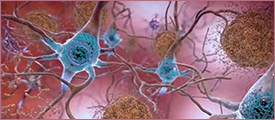Florida: Specialized Alzheimer’s Adult Daycare, Level Two (345)
Click Here to Start
This will take you directly to the course content. Register or login when you reach the last chapter.
For Mail Order
To register and pay via U.S. mail, please download the PDF below and follow the written instructions.
![]() Florida Specialized Alzheimer's Adult Day Care, Level 2
Florida Specialized Alzheimer's Adult Day Care, Level 2
Course Summary—Florida: Specialized Alzheimer’s Adult Daycare, Level Two

Source: National Institute on Aging.
Florida DOEA Approval: Approved by the FL Department of Elder Affairs, Curriculum Approval #SAADC 10350. Approved through April 2, 2027.
Certified Trainer: The author is certified as an ADRD trainer by the Florida Department of Elder Affairs and is available via e-mail at Lauren@ATrainCeu.com or by phone Monday-Friday from 9 a.m. to 5 p.m. (Pacific Time) at 707 459 3475.
This course is for those of you who provide direct care to clients in a specialized adult day care center. It will increase your awareness and understanding of Alzheimer’s disease and related disorders. The course discusses Alzheimer’s disease and other common types of dementia from the perspective of both workers and clients and includes information on how Alzheimer’s and other types of dementia affect the brain. It describes tests that can be used for cognitive screening and the limitations of those tests.
You will learn about the areas of the brain associated with speech and language comprehension and how cognitive decline affects communication. Understanding how brain deterioration affects behavior is a critical skill for anyone working with a person experiencing the effects of dementia.
The concept of person-centered care, creating a dementia-friendly physical environment, and common medications and their side effects are discussed. Assessing pain and identifying malnutrition and dehydration are described, along with strategies for addressing these important issues.
The course includes a discussion of the importance of meaningful activities and provides information on validation therapy, new technologies, and safety issues. We conclude with information about family issues and caregiver stress.
Criteria for Successful Completion
Study the course material, achieve a score of 80% or higher on the post test (the post test can be repeated if a learner scores less than 80%), complete the course evaluation, and pay where required. No partial credit will be awarded.
Instructional Level
Introductory
Conflict of Interest / Commercial Support Disclosure
The planners and authors of this learning activity have declared no conflicts of interest, vested interest, or financial relationship that may influence the content of this activity. All information is provided fairly and without bias.
ATrain Education, Inc. received no outside financial or commercial support in the preparation, presentation, or implementation of this learning activity and has no affiliation with any company whose products or services are mentioned in this activity.
Target Audience
For those who provide direct care to clients in specialized adult day care centers.
Learning Objectives
When you finish this course you will be able to*:
- List the 3 overall services provided by an adult day care facility.
- Describe 2 differences between Alzheimer’s dementia, vascular dementia, and frontotemporal dementia.
- List 3 ways in which normal cognitive changes that occur in older adults differs from cognitive changes seen in dementia.
- Relate 3 differences between dementia, delirium, and depression.
- Describe the purpose for a neurocognitive screening.
- Relate 3 ways in which dementia affects communication.
- Describe 5 challenging behaviors that might be associated with dementia.
- Define person-centered care.
- Describe 5 key points about pain in an older adult with dementia.
- Relate the 2 most common classes of medications used in older adults with dementia.
- List 5 risk factors for malnutrition and dehydration in older adults with dementia.
- Describe 3 features of a meaningful activity.
- Describe the 3 main components of validation therapy.
- List the 2 key features of safety technologies.
- Relate 5 ways to reduce caregiver stress.
*Please note: attainment of course objectives will be assessed in the course evaluation.
Lauren Robertson, BA, MPT
The author is certified as an ADRD trainer by the Florida Department of Elder Affairs and is available via e-mail at Lauren@ATrainCeu.com or by phone Monday-Friday from 9 a.m. to 5 p.m. (Pacific Time) at 707 459 3475.
Approved by the Florida Department of Elder Affairs, Curriculum Approval Level 2 / 4 hour SAADC 10350. Approved through April 2, 2027.
Available Credit
- 4.00 Contact hours

 Facebook
Facebook Twitter
Twitter LinkedIn
LinkedIn Forward
Forward